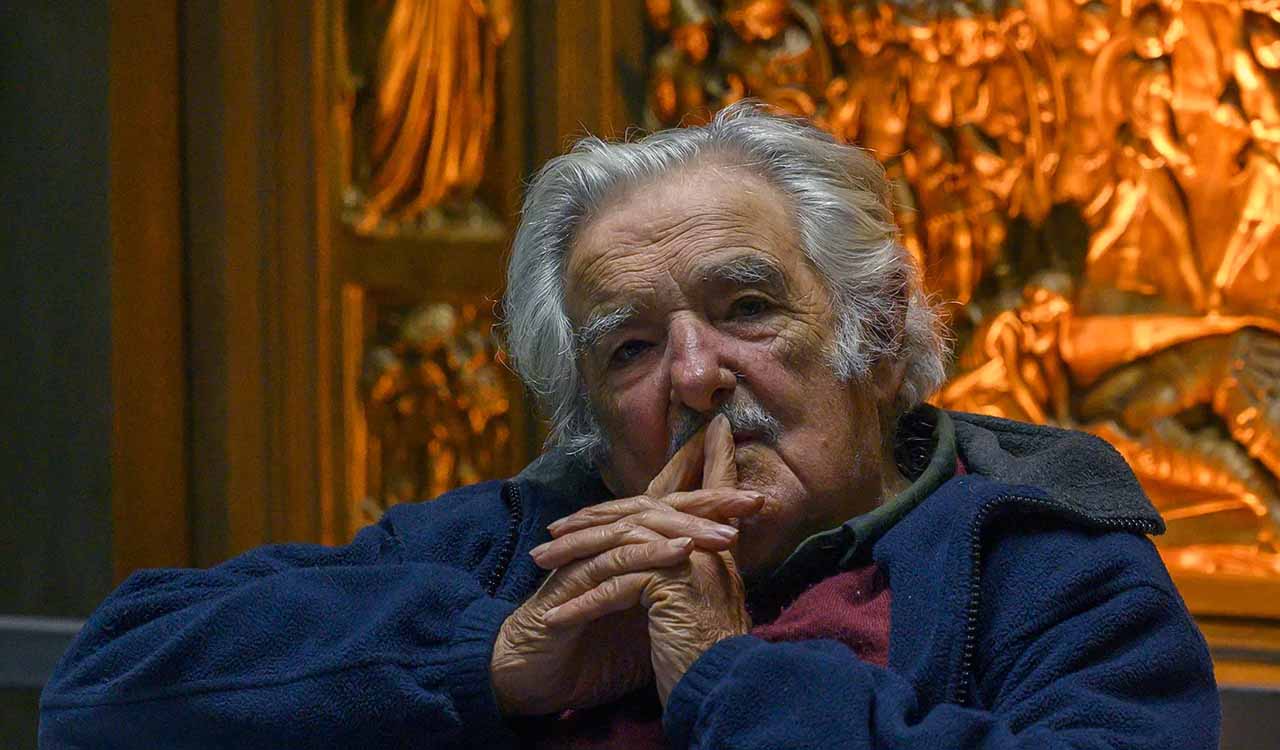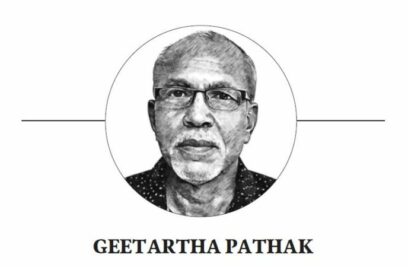Opinion: World’s poorest President and political elites
José Mujica’s life was a testament to simplicity, empathy and resistance to capitalist greed, and his words, ‘Happiness is not about having more, but about needing less,’ urge leaders to prioritise humanity over wealth

By Geetartha Pathak
José ‘Pepe’ Mujica, Uruguay’s former President (2010–2015), who passed away on May 13, at 89, was a global symbol of simplicity and progressive reform. Known as the “world’s poorest president,” Mujica’s modest lifestyle and fight against capitalist excesses stand in sharp contrast to the many affluent statesmen and national leaders of countries such as India.
Also Read
Early Life
Born in 1935 in Montevideo to a struggling farming family, Mujica’s early life was marked by poverty after his father’s death. His revolutionary spirit led him to join the Tupamaros, a leftist guerrilla group, resulting in 14 years of imprisonment, including brutal solitary confinement, during Uruguay’s dictatorship regime. These experiences shaped his empathy and led to a rejection of materialism.
As President, Mujica lived in a modest farmhouse, drove a 1987 Volkswagen Beetle, and donated 90% of his $12,000 monthly salary to charities, declaring assets of just 1,35,000 pounds in 2014. He said, “I’m not poor. Poor are those who need more and more, who are never satisfied.” This philosophy critiqued consumerist culture, which he saw as a trap: “When you buy something, you’re paying with the time of your life you spent earning that money.”
Mujica’s presidency redefined Uruguay as a progressive leader in South America. He legalised same-sex marriage, decriminalised abortion, and regulated marijuana to undermine drug cartels, stating, “We don’t invent reality. Homosexuality and abortion exist. The issue is to stop torturing people.” His reforms were pragmatic, aimed at reducing harm and promoting equity.
Questions Capitalism
Mujica’s critique of capitalism was profound. At the 2012 Rio+20 Summit, he warned, “We’re creating a civilisation against simplicity, against sobriety, against all natural cycles.” He questioned whether the planet could sustain the consumption of rich societies for billions, advocating for a world where “we can recycle almost everything if we live prudently.”
His policies supported small farmers, strengthened trade unions and raised minimum wages, ensuring businesses shared profits fairly. He told the US Chamber of Commerce, “Businesses want profits; it’s the government’s job to ensure workers can buy what they produce.” His marijuana policy redirected drug trade profits to the state, weakening cartels while funding social programmes.
World Leaders
Mujica’s humility and anti-capitalist stance contrast sharply with the affluent lifestyles and corporate-friendly policies of many of the world’s leaders. US President Donald Trump, a billionaire real estate mogul, embodies wealth and spectacle, living in opulent properties like Mar-a-Lago, a far cry from Mujica’s farmhouse. His policies, including massive tax cuts for corporations in 2017, favour the wealthy, with the top 1% gaining significantly while middle-class benefits were modest.
Trump’s rhetoric, like calling the press “the enemy of the people,” aligns with authoritarian tendencies, contrasting with Mujica’s defence of free expression. Mujica’s warning, “The pursuit of power corrupts the soul,” critiques Trump’s loyalty-driven governance, seen in his push to place loyalists in key roles.
Turkey’s President Recep Tayyip Erdoğan, who has been in power since 2003, lives a lavish lifestyle, with a 1,150-room presidential palace costing over $600 million, symbolising his authoritarian grip. His policies have enriched loyalists while Turkey’s economy struggles with inflation, alienating the urban middle class. Erdoğan’s crackdowns on press freedom and detention of rivals like Istanbul mayor Ekrem İmamoğlu contrast with Mujica’s tolerance. Mujica’s inclusive reforms clash with Erdoğan’s nationalist, anti-LGBTQ agenda, inspired partly by Trump. Mujica’s belief that “the greatest wealth is the love and respect we receive” opposes Erdoğan’s divisive rule.
Uruguay’s former President (2010–2015) lived a modest lifestyle and fought against capitalist excesses in sharp contrast to the many affluent statesmen and national leaders of various countries. His reforms were pragmatic, aimed at reducing harm and promoting equity
Israel’s Prime Minister Benjamin Netanyahu, who is facing corruption charges, lives a comfortable life with state-funded perks, unlike Mujica’s self-imposed austerity. His policies prioritise military strength and settlement expansion, often at the expense of Palestinian rights, drawing criticism from Mujica’s perspective of empathy for the oppressed. Netanyahu’s alignment with Hungarian Prime Minister Viktor Orbán and Donald Trump, including purging Israel’s Shin Bet director to quell investigations, reflects a power-consolidation strategy Mujica would reject.
Orbán, who has been in power since 2010, has reportedly amassed wealth through loyalists like Lőrinc Mészáros, whose fortune is tied to government largesse. His Budapest residence and nationalist monuments contrast with Mujica’s modest home and anti-consumerist stance. Orbán’s “illiberal democracy” curbs press freedom, judicial independence and LGBTQ rights, policies Mujica’s inclusive governance opposed. Orbán’s alignment with Trump and Netanyahu, including Hungary’s withdrawal from the ICC to shield Netanyahu, reflects a nationalist agenda Mujica would critique as prioritising power over people.
Back Home
Prime Minister Narendra Modi’s public image is one of disciplined austerity, but his lifestyle includes tailored attire, high-profile international trips, and a carefully curated personality contrasting with Mujica’s unpretentiousness. Modi’s policies, like the 2019 corporate tax cut (from 30% to 22%) and the 2020 farm laws (later repealed), have favoured conglomerates like those of Gautam Adani and Mukesh Ambani, raising concerns about crony capitalism. The Adani Group’s dominance in infrastructure under Modi’s tenure contrasts with Mujica’s support for small-scale farmers. Modi’s Make in India initiative promotes industrial growth, but Mujica would likely criticise its environmental cost, advocating for “a civilisation that respects natural cycles.”
We can compare Bihar Chief Minister Nitish Kumar’s opportunistic politics despite his many welfare schemes like women’s empowerment programmes. His flip-flopping prioritises political survival over ideological consistency. Mujica, who remained steadfast in his socialist principles despite imprisonment, would likely view Kumar’s opportunism with disdain.
Mujica fought big capitalists by prioritising policies that empowered workers and small producers. His marijuana legalisation weakened cartels, and his support for trade unions ensured fair wealth distribution. He saw capitalism’s excesses as a moral failing, stating, “We have sacrificed the old gods for the Market-God.” His governance model balanced economic growth with social equity, supporting small businesses and farmers over corporate giants.
José Mujica’s life was a testament to simplicity, empathy, and resistance to capitalist greed. His reforms made Uruguay a progressive model, and his words, like “Happiness is not about having more, but about needing less,” challenge leaders to prioritise humanity over wealth.
Mujica’s legacy urges leaders to embrace humility and equity, a call that resonates against the backdrop of India’s corporate-aligned governance. As he said, “If I asked people to live as I live, they’d kill me.” Yet, his example remains a powerful appraisal of a world chasing wealth and power at the expense of simplicity and justice.

(The author is a senior journalist from Assam)
Related News
-
Modi, Macron vow deeper defence, trade partnership
4 hours ago -
Sports briefs: Dharani, Tapasya clinch honours
5 hours ago -
Man arrested for cultivating ganja plants in Telangana’s Adilabad
5 hours ago -
Second successive win for Titans in Samuel Vasanth Kumar basketball
5 hours ago -
Women councillors allege misconduct by Congress in Kyathanpalli
5 hours ago -
Gauhati Medical College doctor lodges FIR alleging harassment by principal
5 hours ago -
Two FIRs filed in Chikkamagaluru after week-long stone pelting on house
5 hours ago -
Viral video shows SUV hitting biker in Dwarka, teenage driver detained
5 hours ago




